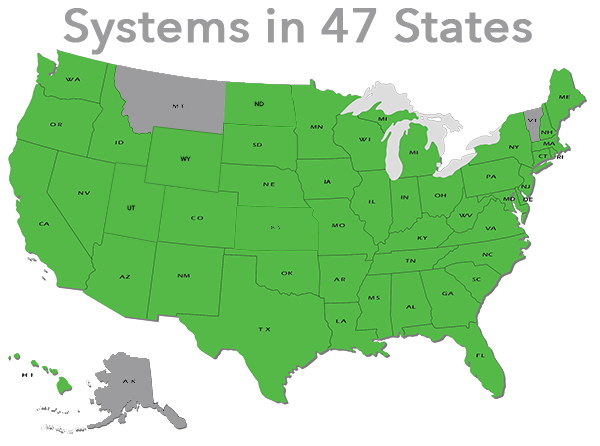FE Leaders Discuss African Energy Development
This week the White House is hosting the first-ever U.S.-Africa Leaders’ Summit, a gathering that includes 51 African leaders. The Summit offers the opportunity to strengthen U.S.-African ties, and is focusing on a number of important issues like trade, investment, African security and democratic development.
Energy development is an area of importance to both the U.S. and African countries. And that’s especially true when it comes to helping Africa sustainably develop its energy potential. That’s why last year President Obama announced the Power Africa initiative – a $7 billion commitment to double access to power in sub-Saharan Africa.
As part of this new engagement with Africa, the Department of Energy (DOE) has been working with African leaders to pursue ways to sustainably develop African energy resources. In June, Secretary Ernest Moniz and the Office of Fossil Energy’s Principal Deputy Assistant Secretary (PDAS) Christopher Smith attended a U.S.-Africa energy ministerial meeting in Addis Ababa, Ethiopia. That meeting set the stage for ongoing collaboration between DOE and African energy leaders.
Following on the ministerial, and in conjunction with the U.S.-Africa Leaders’ Summit, PDAS Smith and Dr. Julio Friedmann, FE’s Deputy Assistant Secretary (DAS) for Clean Coal and Carbon Management, recently led discussions on ways to promote energy security, sustainable development, and economic growth in African countries.
Last week, Smith represented the DOE during the Africa Leaders’ Visit: Energy event in Houston, Texas. During the three-day event organized by the U.S. Trade Development Agency, Smith met with African energy leaders to discuss U.S.-African collaboration on energy development and utilization in African countries.
With a proved reserve of 515 trillion cubic feet, Africa sits on the world’s third largest stockpile of natural gas. The question is how to develop and utilize this tremendous resource to provide not only power generation for millions of Africans, but also economic growth.
So the goal of the Africa Leaders’ Visit in Houston was to introduce African energy ministers to U.S. technologies, best practices, and U.S. companies with experience in natural gas development and utilization. Another aim of the meetings was to consider ways in which African governments can encourage natural gas investment in their countries.
Referring to the growth in U.S. natural gas development and production, Smith noted during remarks kicking off a day of panel discussions that “there are lessons from what we’ve done in the U.S. – and what we’re continuing to do – that other countries may be able to apply to their own unique circumstances.” He added, “We’re happy to share what we’ve learned because we believe that natural gas development and utilization is critical to energy production; economic growth; stable global energy markets; and a reduction in carbon emissions.”
On Friday, Smith moderated a panel of African energy officials who discussed their countries’ natural gas infrastructure development plans, as well as projects moving forward and their investment needs.
At the end of the day, the meetings in Houston represent the ongoing U.S. commitment to helping African countries develop and utilize their natural gas resources in a sustainable way. They fostered a dialogue between African energy leaders and U.S. experts and industry leaders. And they helped lay the groundwork for future U.S.–African engagement.
Meanwhile, yesterday DAS Friedmann led an expert panel on “Advanced Sustainable Electricity and Energy Technologies for All – Inclusive Policies and Transnational Initiatives” at the National Press Club in Washington, D.C. This panel was part of a day-long series focused on promoting science and collaborative initiatives to encourage sustainable development in Africa.
During the discussions, Friedmann underscored the importance of cleaner-burning fossil fuels to sustainable energy development. Pointing to the potential of massive natural gas reserves in the U.S. and Africa, as well as the development of clean coal technologies like carbon capture and storage, he said, “We must harness this era of fossil energy abundance to build the sustainable future we want and need.”
At the same time, Friedmann cautioned that pursuing clean and sustainable energy development means that care must be taken to avoid overusing other critical resources – especially limited water resources. “Clean energy and sustainability should mean using less – and producing more – freshwater.” That’s particularly important in many parts of Africa where water is scarce.
Apart from water usage, there are other issues specific to Africa. The U.S. can provide scientific and technical resources to help tackle these, but in the context of circumstances unique to Africa. “Africa's needs require innovative African solutions,” Friedmann said. “Scientific and technical knowledge is required to make these succeed.”
























